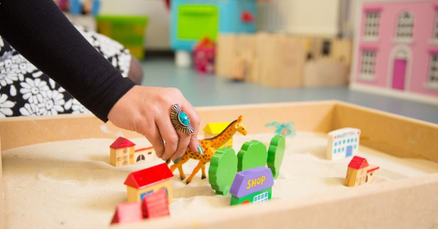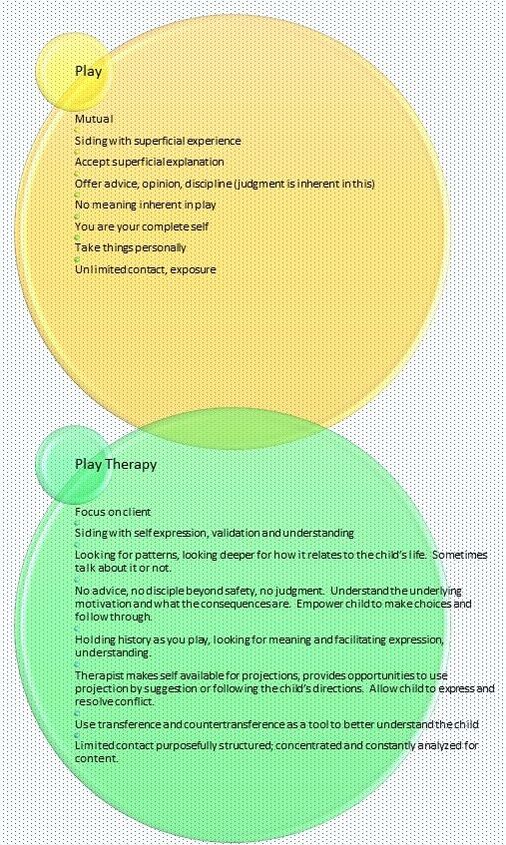Over the years, I have decidedly used play therapy as the primary model of working with kids in therapy. Play therapy is tricky to explain, since it can look a lot like simple play. A client and a therapist can be deep in the throes of a storyline that involves different races of dinosaurs battling each other to the death, spies who turn out to be counterspies (who turn out to be counterspies), and babies who require care but are also very annoying. Or a client can play Uno for several weeks, always changing the rules so that they win at the very end after a long, drawn out game. Or a client tells lie after lie, spills toys carelessly, and asks to open every drawer in the therapy office, saying they will never come back for therapy. Some of this looks like fun, boisterous play and some can be more coy and mischievous acts.
In play therapy, it doesn’t matter so much what the actions may be. We are playing. What makes it a therapeutic intervention is how the clinician responds to the client and how the space and time is held intentionally. I found a straightforward infograph that highlights what the difference is between play therapy and play. I use this often, in supervisions and as a reminder to myself.
Play therapy is a fantasy place, where adults don’t have to push an overt agenda, hold to a list of action steps, or make sure to check for understanding from the child. It takes a lot of intention to not take the invitation to focus on how to correct or change a child’s behavior especially with the emphasis on teaching more observable behaviors like classic coping skills. But the processing of the underlying needs of problematic behaviors is an important aspect of treatment that needs to be addressed for lasting health and strength. Play therapy offers a space where these underlying needs (questions about what happened to them, what their self-identity is, what the rules of relationships are) can be addressed to support shifts in internal working models that inform our behaviors over time. This is, in essence, the process of changing from within.
In our school partnerships we have an opportunity to use multi-tiered supports as well as multi-leveled clinical interventions to address entrenched problematic behaviors. In a world that values the effectiveness of CBT and skills based programs, please don’t forget to consider play therapy as an effective intervention that can give a new avenue for our students and clients to play with the prospect of change amidst limitless possibilities.



 RSS Feed
RSS Feed